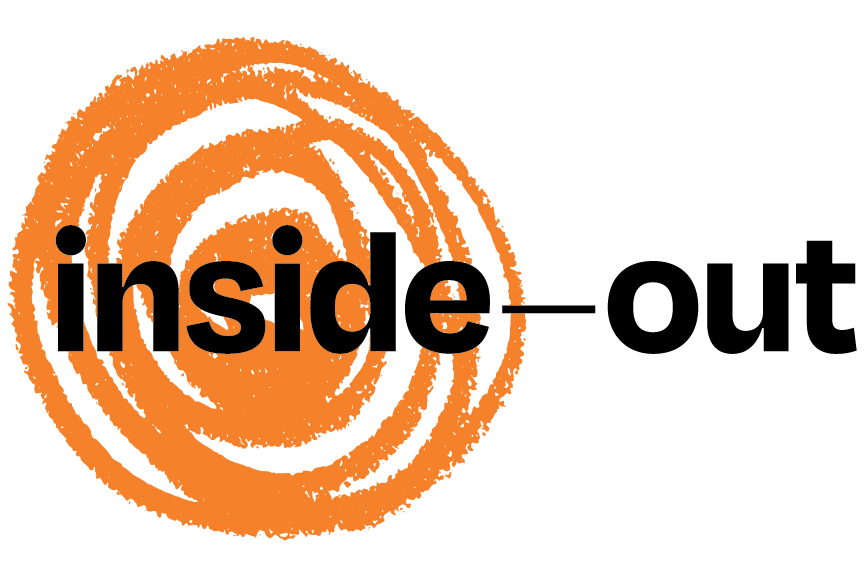Friday Sabbatical: Downward spirals, Level 5 leaders, and the Universal practices of top artists
Whatever you’re doing this Friday, wherever you’re going or whatever box you’re checking, I invite you to take a moment, just now, and stop doing it at all.
I'm excited to share with you a few leadership tools/ideas/resources I've run across this week.
1. Maybe you know this one. I had a relationship in my company, a person I worked with for a long time, in which no matter what we were ostensibly talking about it would invariably devolve into an argument about the same crap (usually unrelated or only semi-related to the subject at hand) and we'd both leave shaking our heads at the other person. Maybe the issue we talked about would be resolved, more likely not. For years, I just thought this was a "people issue," but it's not. It was my issue. In the book Ego Free Leadership, Shane Hughes calls this a Downward Spiral, and provides this graph of what it looks like in action.
What I now understand was happening all those years (and was responsible for all that lost time/money/bandwidth) was that I had a pre-drawn conclusion about my coworker -- that the person was stubborn, always had an agenda, and didn't understand how to do the job -- which I brought into the conversation and which colored everything he said in my mind so that no matter what idea he brought forth, I heard it within that context. Even if it was a great idea, it started out in debt in my ears, simply because of my unstated beliefs about my coworker. Then on his side, he had long since made up his mind that I didn't listen to him, so everything I said he interpreted through that lens, and in response to that he was more forceful.
We could have been discussing where to go for lunch, and whatever he said I'd hear "he's pushing an agenda and he doesn't get it" so I'd be unconsciously dismissive, thereby reinforcing his view that I didn't listen to him and triggering him to be more forceful. Around and around we go, we both get frustrated, and we both go hungry (or maybe get Rico's Deli downstairs because we ran out of time).
This dynamic is not uncommon. So what’s the way out? According to Hughes (and I can attest in my own experience): state your unstated beliefs.
This isn’t to say dump your problems on your team, but if you believe something about a teammate that you have not said, you bring that belief into every interaction. It’s only by stating that belief, however uncomfortable, and dealing with whatever that brings up, that you can move past it and focus on the issues at hand.
2. Before he wrote Good to Great, Jim Collins wrote about Level 5 Leadership in Harvard Business Review. He detailed it as a combination of "Humility + Will = Level 5." This loosely aligns with the definition of Transcendent Leadership that I'll detail in a later post. But what I found endlessly fascinating about Collins's research findings is that, in order to attain the coveted level 5 status, a leader must both have innate capacity for such, and be subject to the right conditions.
"For leaders with the seed, the right conditions--such as self-reflection or a profoundly transformative event, such as a life-threatening illness--can stimulate the seed to sprout."
This is why so many of the best leaders have a trauma story in their past.
3. In that same analysis in the HBR, Collins detailed a couple other techniques one can use to grow to Level 5:
First Who -- Attend to people first, strategy second. Get the right people on the bus and the wrong people off -- then figure out where to drive it.
Stockdale Paradox -- Deal with the brutal facts of your current reality--while maintaining absolute faith that you'll prevail.
4. Ryan Holiday, NYT Bestselling Author and contemporary curator of ancient wisdom, found that the daily practices of the best artists on the planet are nearly universal:
journaling
set wake up time
quiet moments of reflection
exercise
reading
walks
Since COVID my morning practice includes 4/6 of these, and I try to fit walks and quiet moments of reflection in throughout the day.
5. Let's finish with a couple quotes:
Meditation, starting over, and over, and over, is literally training ourselves in resilience. There is no bigger gift you could give your life [or your team] than that.
Sharon Salzberg, Meditation Teacher, Author, and founder of Insight Meditation Society
Hope is not the conviction that something will turn out well, but the cetainty that something makes sense, regardless of how it turns out.
Thank you for reading! Please let me know what you liked here, and what you'd like to see more of. Your feedback is gold for me as I look to make this a useful resource for those of us who are up to something in the world.

